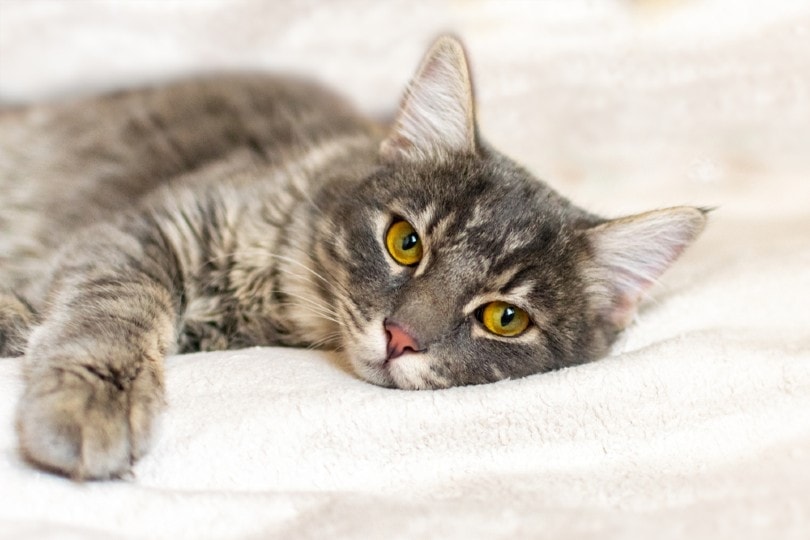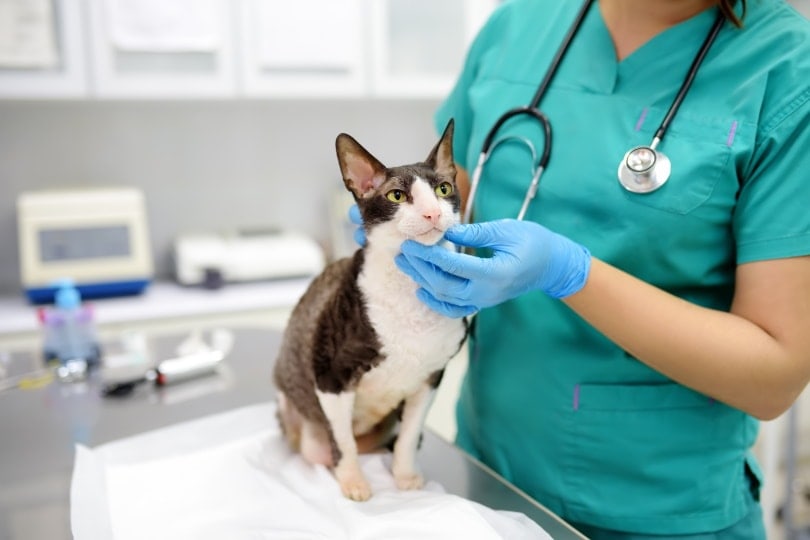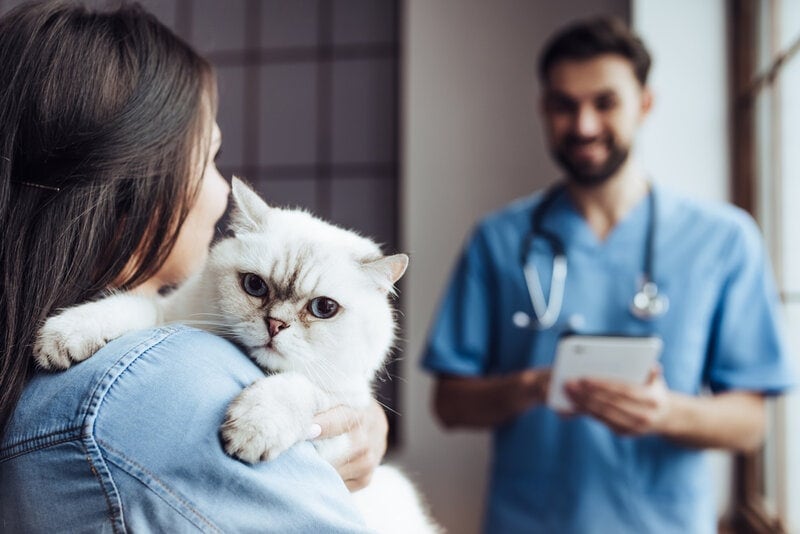How Common is Heartworm in Cats? 7 Things to Know About Heartworm Disease (Vet Answers)

Updated on

Feline heartworm disease, often called Heartworm Associated Respiratory Disease (HARD) when illness occurs as a result of infection, is an often underrecognized issue in cats, especially compared to it being a well-known cause of illness in canine counterparts. Heartworms are a type of parasite that can infect any cat, regardless of age, breed, or whether they live indoors or outdoors.
While cats appear to be more resistant than dogs to developing illness associated with heartworm infections, it is still an important disease to be aware of. Here are some top tips about heartworm disease in cats.
Top 7 Facts About Heartworm Disease In Cats
1. Diagnosis Is Difficult
Cats tend to become infected with smaller numbers of heartworm adults, and because most testing relies on the number of female heartworms present during an infection, this can make a heartworm-sick cat appear uninfected. Dogs, on the other hand, carry higher levels of adult worms, so the tests tend to be more accurate. Alternative tests that check for antibodies are also available, however, they take weeks to produce a positive result.

2. Heartworm In Cats More Commonly Impacts The Lungs Rather Than The Heart
In cats, heartworm as a term is almost a misnomer. This is because heartworm in cats actually tends to live in the arteries in the lungs, rather than in the heart. This also means that most signs of heartworm in cats tend to be associated with the lungs—including a cough, or other changes in breathing. In worst case scenarios, heartworm can also lead to sudden death.
3. Illness Can Continue Long After The Actual Infection Has Resolved
In some cats, heartworm infections cause significant inflammatory reactions, which can damage the sensitive lung or heart tissues. This might mean that a cat can have a chronic cough that arose from a heartworm infection years before. Once these inflammatory changes have occurred, they are generally irreversible.

4. Heartworm Infections Can Be Prevented
Medications can be prescribed by a veterinarian that prevent heartworm infections. Most of these medications are easy to give to a cat (many are topical, which means a liquid placed onto the cat’s skin), and are needed once a month, at most. To be effective, these medications must be used regularly, and during all parts of the year when heartworm infections can occur. However, because many of these medications also cover for flea or tick treatment, they are well worth the investment!
5. Treatment Is Difficult
There is no cure for feline heartworm disease. If a cat is diagnosed with active heartworm infection, a vet may recommend an ultrasound of the heart or lungs to look for heartworms, or x-rays to survey the lungs for changes relating to the infection. However, treatment is generally supportive, to help keep a cat comfortable until the infection resolves. If clinical signs such as a cough occur, a vet may consider prescribing medications to help reduce the impact and frequency of these signs.

6. Heartworm Is Transmitted By Mosquitos
Heartworm is a bloodborne parasite that is transmitted to cats through mosquito bites. Infected mosquitos obtain heartworm by biting other infected animals, then pass this on to uninfected animals they subsequently bite. Geographic location and general climate factors can have great impacts on the number of mosquitos in a location. For instance, cold climates with harsh winters tend to have smaller mosquito populations than locations with year-round warm weather. This may also impact how you and your vet approach heartworm prevention for your cat, but note even indoor-only cats are susceptible to mosquito bites!
7. Heartworm Can Carry Other Parasites That Can Cause Feline Illness
In recent years, it has been found that heartworm can themselves be infected with bacteria. While the significance of this infection is not fully understood, there are suggestions that the bacteria may exacerbate heartworm-related illness in pets. The main bacteria that has been studied is called Wolbachia, and is believed to play a role in the heartworm lifecycle, as well as being a promoter of inflammation in infected cats and dogs.
Conclusion
Heartworms in cats present a different set of challenges for cats and their owners in comparison to dogs. This is because the disease is difficult to diagnose due to smaller numbers of worms in the course of infection, and because the disease causes more subtle clinical illness in many feline patients.
However, because the disease can be prevented, ensure that your cat has a close relationship with their veterinarian, and is on appropriate treatment for your local geographic region.
While heartworm is very different from most feline worms (you won’t find it in poop!), it is also one of the more concerning parasites cats can become infected with, due to the potential for lifelong side effects, or even sudden death.
Armed with some knowledge, and a good relationship with your cat’s vet, tackling heartworms head on can be quite doable!
Featured Image Credit: Ro_ksy, Shutterstock











